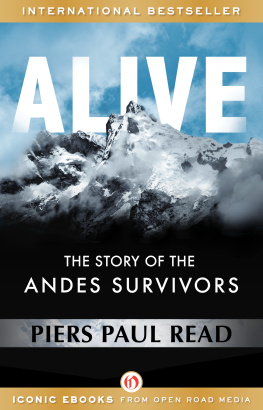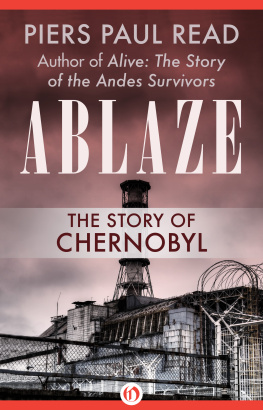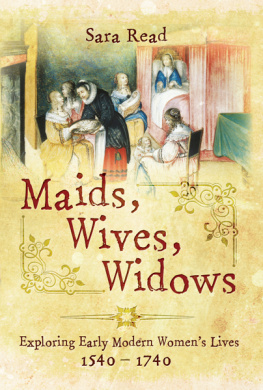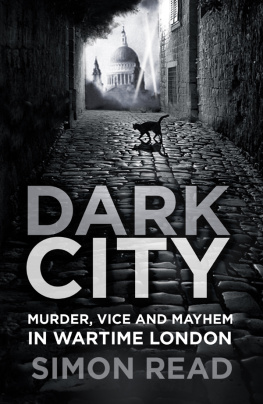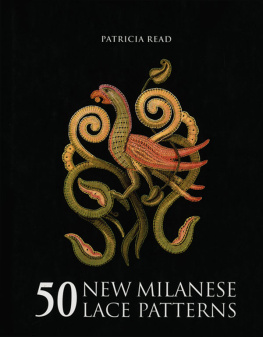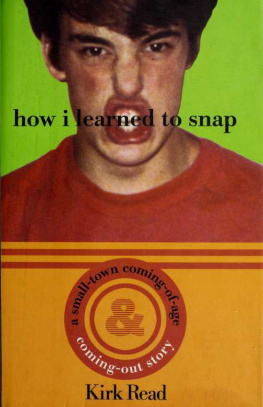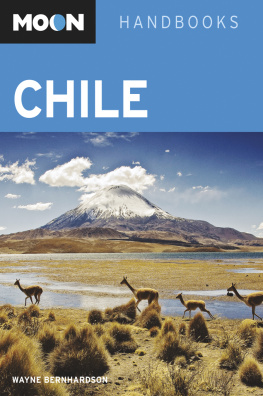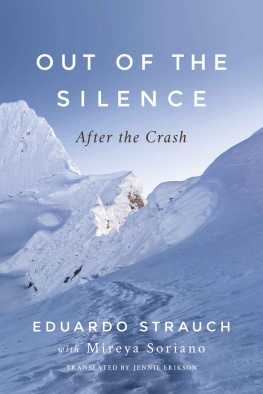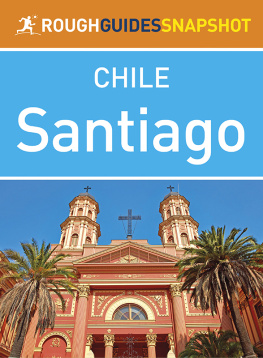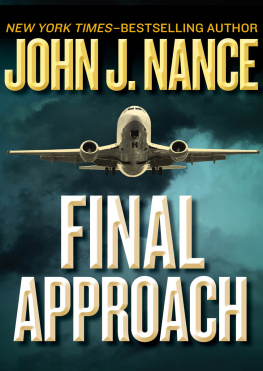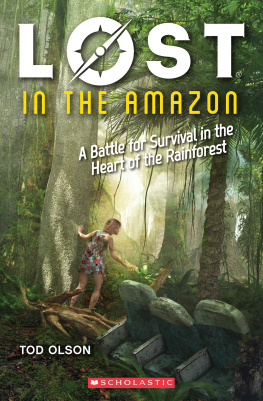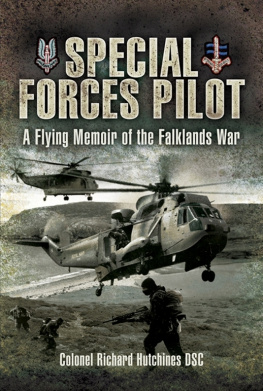Alive
The Story of the Andes Survivors
Piers Paul Read

Greater love hath no man than this, that a man lay down his life for his friends
JOHN 15:13
We decided that this book should be written and the truth known because of the many rumours about what happened in the cordillera. We dedicate this story of our suffering and solidarity to those friends who died for us and to their parents who, at the time when we most needed it, received us with love and understanding.
Pedro Algorta, Roberto Canessa, Alfredo Delgado, Daniel Fernndez, Roberto Francois, Roy Harley, Jos Luis Inciarte, Javier Methol, Alvaro Mangino, Carlos Pez, Fernando Parrado, Ramn Sabella, Adolfo Strauch, Eduardo Strauch, Antonio Vizintn, Gustavo Zerbino.
Montevideo, October 30, 1973
Acknowledgments
In writing this book I was helped by various people especially by Edward Burlingame of J. B. Lippincott Company, who first suggested that I should write it.
In Montevideo my researches were aided by two Uruguayan journalists. The first was Antonio Mercader, whose, assistance was suggested to me by the Committee of the Old Christians. He provided me not only with the complex details of the search for the plane undertaken by the parents but also with invaluable material on the background of the survivors. The second journalist was Eugenio Hintz, who gathered material about what was done by the official agencies of the Uruguayan and Chilean governments. I am also indebted to Rafael Ponce de Len and Gerard Croiset, Jr, who told me of their roles in the search for the Fairchild; to Pablo Gelsi, who acted as my interpreter; and above all to Dr Gilberto Regules, for his advice and friendship.
In London I was helped with the transcription of the tapes and the organization of the considerable material I had gathered in Uruguay by Georgiana Luke and later, in further research, by Kate Grimond.
I was given a free hand in writing this book both by the publisher and the sixteen survivors. At times I was tempted to fictionalize certain parts of the story because this might have added to their dramatic impact, but in the end I decided that the bare facts were sufficient to sustain the narrative. With the exception of the rendering of some speech in dialogue form, nothing in this book departs from the truth as it was told to me by those involved.
It is to them, finally, that I am most grateful. Everywhere I went in Uruguay I was met by that intimate courtesy and native grace of manner which W. H. Hudson encountered in the same country more than a hundred years ago. I found it in the families of those who died, in the families of the survivors, and, above all, in the survivors themselves, who treated me with a most exceptional warmth, candour, and trust.
When I returned in October 1973 to show them the manuscript of this book, some of the survivors were disappointed by my presentation of their story. They felt that the faith and friendship which inspired them in the cordillera do not emerge from these pages. It was never my intention to underestimate these qualities, but perhaps it would be beyond the skill of any writer to express their own appreciation of what they lived through.
P.P.R .
Preface
On October 12, 1972, a Fairchild F-227 of the Uruguayan Air Force, chartered by an amateur rugby team, set off from Montevideo in Uruguay for Santiago in Chile. Reports of bad weather in the Andes brought the plane down in Mendoza, a town on the Argentinian side of the range. The next day the weather had improved. The Fairchild set off again, flying south to the Planchon Pass. At 3.21 p.m. the pilot reported to Air Traffic Control in Santiago that he was over the Pass of Planchon, and at 3.24 that he was over the town of Curic in Chile. He was authorized to turn north and begin his descent to the airport of Pudahuel. At 3.30 he reported his height as 15,000 feet, but when Santiago control tower spoke to the Fairchild a minute later there was no reply.
For eight days the Chileans, Argentinians, and Uruguayans searched for the plane. Among the passengers there had been not just the fifteen members of the rugby team but twenty-five of their friends and relations, all coming from prominent families in Uruguay. The search was fruitless. The pilot had evidently miscalculated his position and flown north towards Santiago when he was still in the middle of the mountains. It was early spring in the southern hemisphere, and the Andes had suffered exceptionally heavy falls of snow. The roof of the plane was white. There was little chance that it would ever be found, and less chance still that any of the forty-five passengers and crew could have survived the crash.
Ten weeks later a Chilean peasant tending his cattle in a remote valley deep in the Andes saw, on the far side of a mountain torrent, the figures of two men. They made wild gestures and fell to their knees as though in supplication, but the peasant, thinking that they might be terrorists or tourists, went away. When he returned to the same spot the next day the two figures were still there, and once again they made signs to him to approach. He went to the bank of the river and threw a piece of paper and a pen wrapped in a handkerchief to the other side. The bearded, bedraggled figure who received it wrote on the paper and threw it back to the peasant. It read: I come from a plane that fell in the mountains. I am Uruguayan.
There were sixteen survivors. This is the story of what they suffered and of how they remained alive.
One
Uruguay, one of the smallest countries on the South American continent, was founded on the eastern bank of the River Plate as a buffer state between the emerging giants of Brazil and Argentina. Geographically it was a pleasant land, with cattle running wild over immense pasturelands, and its population lived modestly either as merchants, doctors and lawyers in the city of Montevideo or as proud and restless gauchos on the range.
The history of the Uruguayans in the nineteenth century is filled first with fierce battles for their independence against Argentina and Brazil and then with equally savage civil skirmishes between the Blanco and Colorado parties, the Conservatives from the interior and the Liberals from Montevideo. In 1904 the last Blanco uprising was defeated by the Colorado president, Jos Batlle y Ordez, who then established a secular and democratic state which for many decades was regarded as the most advanced and enlightened in South America.
The economy of this welfare state depended upon the pastoral and agricultural products which Uruguay exported to Europe, and while world prices for wool, beef and hide remained high, Uruguay remained prosperous; but in the course of the 1950s the value of these commodities went down and Uruguay went into a decline. There was unemployment and inflation, which in turn gave rise to social discontent. The civil service was overstaffed and underpaid; lawyers, architects, and engineers once the aristocracy of the nation found themselves with little work and were paid too little for what there was. Many were compelled to choose secondary professions. Only those who owned land in the interior could be sure of their prosperity. The rest worked for what they could get in an atmosphere of economic stagnation and administrative corruption.
As a result, there arose the first and most notable movement of urban guerrilla revolutionaries, the Tupamaros, whose ambition was to bring down the oligarchy which governed Uruguay through the Blanco and Colorado parties. For a while things went their way. They kidnapped and ransomed officials and diplomats and infiltrated the police force, which was set against them. The government called upon the army, which ruthlessly uprooted these urban guerrillas from their middle-class homes. The movement was suppressed; the Tupamaros were locked away.

